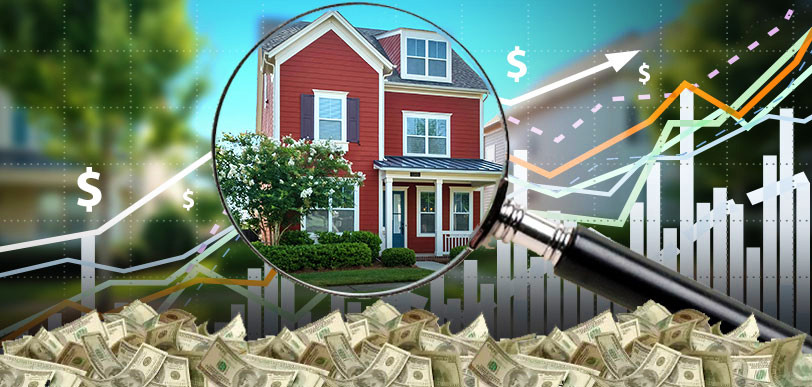Are you thinking about refreshing your home’s exterior with new siding this year? Planning your budget ahead of time and understanding the costs can make it easier to choose materials that suit your style and needs. In 2025, the average cost of siding a house varies widely, affected by factors like material, labor, and location. Here’s a closer look at siding prices, along with helpful tips for picking the right option for your home.
Quick Look: 2025 Siding Cost Estimates
Here’s a snapshot of typical siding costs based on popular materials:
| Siding Material | Average Cost per Square Foot Installed | Pros | Cons |
|---|---|---|---|
| Vinyl | $3 - $8 | Affordable, low maintenance | Limited color options |
| Wood | $7 - $12 | Classic look, durable | Requires maintenance |
| Fiber Cement | $6 - $13 | Resistant to rot, long-lasting | Heavier, tougher to install |
| Aluminum | $3 - $10 | Lightweight, weather-resistant | Prone to denting |
| Engineered Wood | $5 - $10 | Durable, natural appearance | May require repainting |
| Stucco | $6 - $15 | Great insulation, long-lasting | Prone to cracks in wet areas |
| Stone Veneer | $10 - $25 | Luxurious, highly durable | Higher upfront cost |
Factors Influencing the Cost of Siding a House
1. Material Choice
Each siding material has unique costs, maintenance needs, and longevity:
- Vinyl Siding: Known for its affordability and low maintenance, vinyl offers several color options but may lack the aesthetic appeal of materials like wood or stone.
- Fiber Cement Siding: Durable and available in many colors, fiber cement siding is a great long-term choice. Fiber cement siding pros and cons.
- Stone Veneer and Stucco: These options offer a natural, luxurious look but come at a higher price.
2. Labor Costs
Labor often makes up a significant part of siding costs, especially in regions with higher living expenses. Labor generally ranges from $1.50 to $4 per square foot.
3. House Size and Layout
Larger homes or those with complex designs may require more materials and time, impacting the cost. Consulting a siding expert can provide an accurate assessment.
4. Climate Considerations
Climate influences material choice. For instance, durable options like fiber cement and stone veneer might be best in storm-prone regions, while vinyl suits milder climates.
5. Local Regulations and Permits
Some areas require permits for significant exterior renovations, which can add to your total costs.
Choosing the Right Siding Material for Your Home
| Siding Type | Advantages | Disadvantages |
|---|---|---|
| Vinyl | Affordable, easy maintenance | Limited texture and color options |
| Wood | Natural look, eco-friendly | High maintenance, pest-prone |
| Fiber Cement | Fire-resistant, long-lasting | Heavy, harder to install |
| Aluminum | Lightweight, resists corrosion | Can dent easily, limited design styles |
| Engineered Wood | Wood-like durability | Moisture-sensitive |
Using Siding Cost Calculators to Budget Effectively
Interactive siding cost calculators let you input your home’s dimensions, siding choice, and location to get a quick estimate.
Cost Comparison: Is DIY Siding Installation Worth It?
DIY installation may save money, but has several potential drawbacks:
- Skill Requirement: Professionals have the training to install siding correctly, ensuring panels are secure and fit well.
- Tools and Equipment: Specialized tools can be costly for a single project.
- Warranty: Many siding warranties are only valid with certified professional installation.
Regional Variations in Siding Costs
Siding costs vary by location:
- Northeast and Midwest: Durable materials like fiber cement or vinyl are common in cold regions.
- Southwest: Stucco and stone veneer are favored for insulation in warm, dry climates.
- Southeast: Humid climates call for moisture-resistant materials like vinyl or aluminum.
Frequently Asked Questions About Siding Costs
How much does it cost to side a 2,000-square-foot home in 2025?
A 2,000-square-foot home typically costs between $6,000 and $20,000, depending on material choice, labor rates, and additional expenses like permits.
What is the most affordable siding material?
Vinyl is one of the most budget-friendly choices, averaging $3 to $8 per square foot installed.
How long does siding installation take?
A typical siding project for a standard home may take about 7 to 10 days.
Tips for Saving on Siding Costs
- Opt for Durable Materials: Investing in high-quality materials may save you from frequent replacements.
- Look for Off-Season Deals: Many contractors offer discounts during less busy months.
- Get Multiple Quotes: Comparing contractors ensures you find the best value.
- Ask for Local References: Seeing completed projects in your area can help confirm a contractor’s reliability.
Conclusion
Choosing the right siding enhances curb appeal, improves insulation, and protects against the elements. By understanding the average cost of siding and consulting local experts, you’ll ensure a project that adds value and beauty to your home.
written by RoofScope published on 11. 01. 2024

